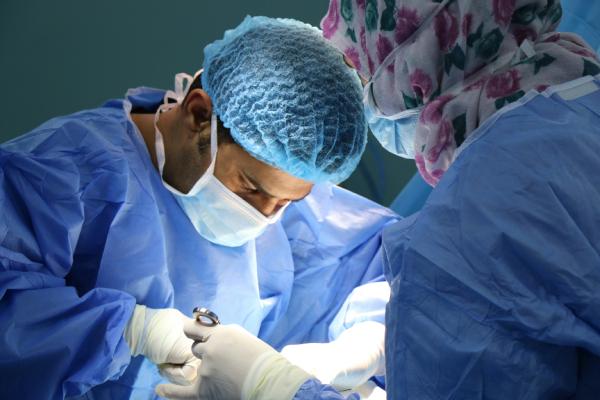Infertility is often perceived as a female issue, but according to recent estimates, men are the primary cause in roughly 20% of infertility cases and play a role in an additional 50% of cases. There are various factors that can affect sperm production, quality, or function and result in difficulties in conceiving.
To diagnose and address these issues properly, it’s important to understand the underlying factors that directly contribute to male infertility. The most common causes of infertility in men can be grouped into four categories: obstruction in the passage of the sperm, problems with sperm number or quality, hormonal problems, and functional problems. Let’s take a closer look at each group.
Obstruction of the Reproductive Tract
Understanding how the obstruction of the passage of sperm takes place requires a general knowledge of where sperm originate and how they travel through the body. The testicles serve as the starting point of sperm. From here, the sperm matures as they pass through a series of small tubes called epididymis and a large tube called the vas deferens. After passing through the vas deferens, the sperm are emptied into the ejaculatory duct, where they are mixed with seminal fluid.
The absence of any of the tubes mentioned above or the presence of a blockage in any of these sections are common causes of infertility in men. Blockages in the reproductive tract can be congenital (a man is born with it), but it’s also possible to acquire them through infections, inflammation, or prior surgical procedures like a vasectomy. Obstructive causes of male infertility can often be addressed through surgical interventions to remove or bypass the blockage, allowing sperm to be ejaculated normally. Procedures such as microsurgical vasectomy reversal or sperm retrieval techniques may also be recommended depending on the location and severity of the obstruction.

Problems with Sperm Count or Quality
There are also cases where male infertility is due to problems in sperm quality or count. Among these conditions are azoospermia, or the absence of sperm in the semen, oligospermia or insufficient sperm count to bring about conception, and sperm with abnormal shape or poor motility. One common cause of poor sperm quality is varicocele, or the enlargement of veins within the scrotum. This condition can disrupt the normal bloodflow from the testicles and increase the temperature within the scrotum, which can negatively impact sperm production and quality. Varicoceles can require surgery to repair the varicose veins and restore normal blood flow to the testicles and thereby improve or normalize sperm quality.
It is thought that genetics plays a role in sperm morphology. To address issues in sperm quality, health professionals may conduct advanced sperm testing and genetic testing to identify specific genetic defects contributing to infertility. Treatment options for genetic causes of male infertility may include micro-testicular sperm extraction (micro-TESE), assisted reproductive technologies such as intracytoplasmic sperm injection (ICSI) or donor sperm if genetic abnormalities are deemed untreatable.
Hormonal Imbalances
It’s also possible for male infertility to be caused by imbalances in hormones such as testosterone, follicle-stimulating hormone (FSH), and luteinising hormone (LH). These can impact various aspects of male reproductive function, including sperm production and maturation. Hormonal imbalances may result from conditions such as hypogonadism, pituitary disorders, or thyroid dysfunction.
These imbalances can disrupt the delicate hormonal feedback mechanisms involved in spermatogenesis, leading to reduced sperm production or impaired sperm quality. Health professionals may assess hormone levels through blood tests and prescribe hormone replacement therapy or other medications to restore hormonal balance and improve fertility.
Functional Problems
This category covers a wide range of issues, from conditions that disrupt the anatomy of the testes to sexual dysfunction. Undescended testicles, for example, may be associated with abnormal testicular development and reduced sperm production. Peyronie’s disease, which results in the curvature of the penis, can make sexual activity difficult if not impossible. The treatments for these issues depend on the specific condition and its underlying cause.
Meanwhile, erectile dysfunction or premature ejaculation can interfere with the ability to achieve or maintain an erection and ejaculate effectively. These issues may be psychological or physiological in nature and can impact fertility by hindering the delivery of sperm into the female reproductive tract. Assessment of sexual function can be done through medical history, physical examination, or psychological evaluation. Medications, counselling, or lifestyle modifications may be used to address underlying causes of sexual dysfunction and improve fertility.





